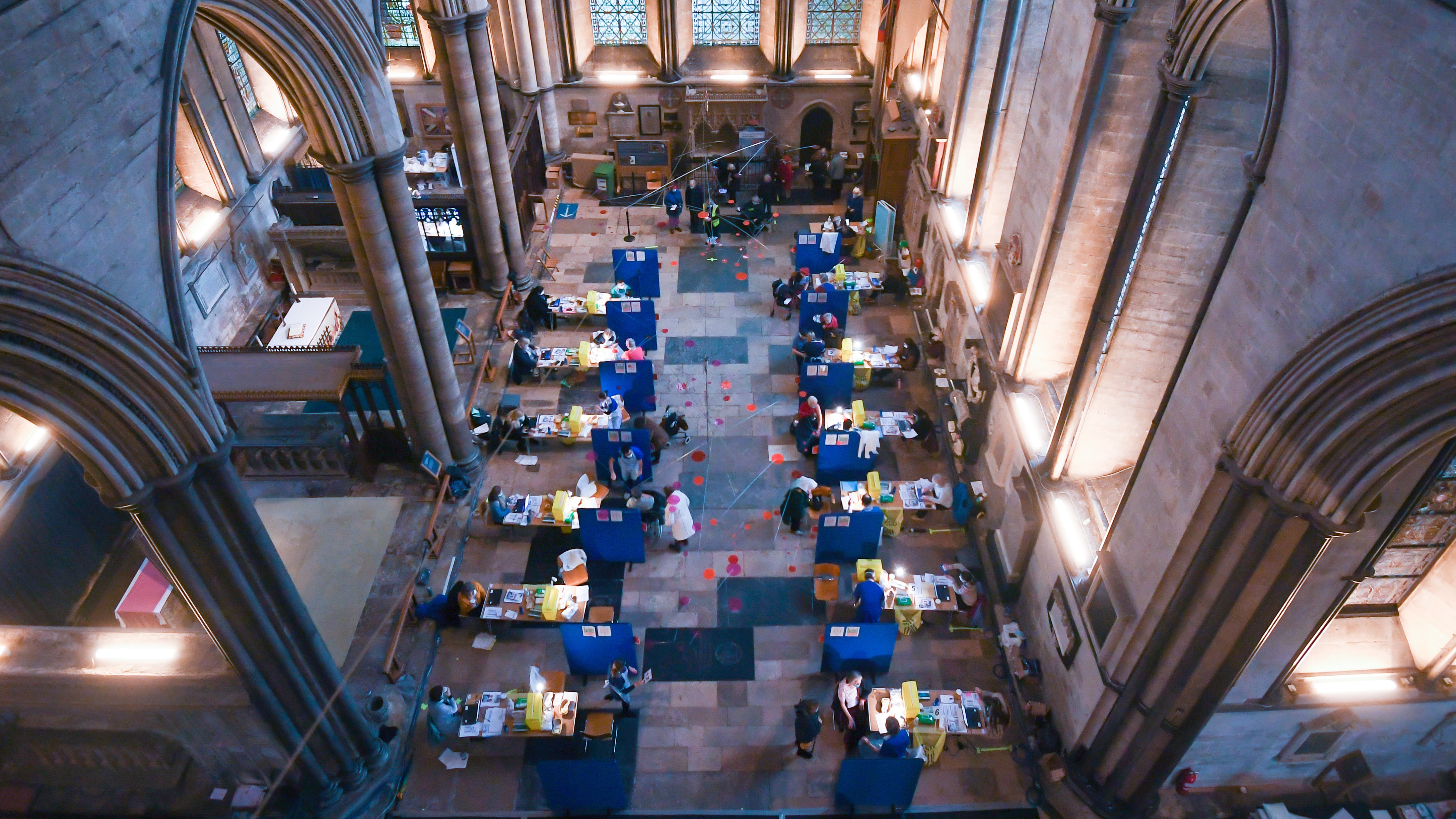Four things we learnt about the jab campaign from vaccine taskforce boss
Clive Dix says speedy rollout will not slow down due to supply shortages

A free daily email with the biggest news stories of the day – and the best features from TheWeek.com
You are now subscribed
Your newsletter sign-up was successful
The head of the vaccine taskforce has bolstered optimism over the UK’s jab campaign by saying that every adult in the country could receive both vaccinations by August.
Speaking to Sky News, Clive Dix, who leads the body that identifies and buys vaccines on behalf of the government, said he was confident in the supply of vaccines due to the “portfolio approach” it took to securing Covid jabs.
The UK has secured access to seven different vaccines, with latest Oxford University tracking showing that it has so far administered 16.12 million doses.
The Week
Escape your echo chamber. Get the facts behind the news, plus analysis from multiple perspectives.

Sign up for The Week's Free Newsletters
From our morning news briefing to a weekly Good News Newsletter, get the best of The Week delivered directly to your inbox.
From our morning news briefing to a weekly Good News Newsletter, get the best of The Week delivered directly to your inbox.
1. Over by August
Dix told Sky News that every adult in the UK could receive both doses of a Covid vaccine by August “or maybe sooner if we need to”. He said that he is “confident... that the supply we’re going to get will take to us to a position where we can vaccinate as many people as the UK wants to vaccinate”.
2. Supply will not slow
Having made such a fast start, the question on everybody’s lips is whether “supply issues will cause a fall in the vaccination rate over the next few weeks”, says Politico’s London Playbook.
But Dix moved to allay these fears, saying: “Of course they could have a manufacturing problem, like you do with any manufacture of anything but with vaccines being more complicated, you could have a problem. But because we’ve taken a portfolio approach we’ve got other vaccines that are going to be approved in the very near future.”
3. Tweaking vaccines
The interview also saw Dix “reveal that new vaccines could be approved in just six to eight weeks in the event new variants are discovered, rather than the year it took to get the first vaccines”, Sky News says.
A free daily email with the biggest news stories of the day – and the best features from TheWeek.com
He said that a tweaked vaccine could take “40 days to have it tested in the clinic and know it works”, adding: “Then manufacture would take another period of time because you wouldn’t manufacture huge amounts before you know it works. So it is a short period of time, it’s not waiting a year like we did this time.”
How vaccines can be ‘tweaked’ to combat new Covid variants
4. Early data is promising
The taskforce boss said all the early data suggests the vaccines are as effective as the government hoped.
“It’s looking like these vaccines are doing exactly what we expect,” he said. “Infection rates are going down, hospitalisations are going down and people are remaining - I wouldn’t say virus-free, because we don’t know that - but we know that they’re not getting serious disease. That’s what we were trying to do.”
How many people need to be vaccinated to get life back to normal?
Chas Newkey-Burden has been part of The Week Digital team for more than a decade and a journalist for 25 years, starting out on the irreverent football weekly 90 Minutes, before moving to lifestyle magazines Loaded and Attitude. He was a columnist for The Big Issue and landed a world exclusive with David Beckham that became the weekly magazine’s bestselling issue. He now writes regularly for The Guardian, The Telegraph, The Independent, Metro, FourFourTwo and the i new site. He is also the author of a number of non-fiction books.
-
 How the FCC’s ‘equal time’ rule works
How the FCC’s ‘equal time’ rule worksIn the Spotlight The law is at the heart of the Colbert-CBS conflict
-
 What is the endgame in the DHS shutdown?
What is the endgame in the DHS shutdown?Today’s Big Question Democrats want to rein in ICE’s immigration crackdown
-
 ‘Poor time management isn’t just an inconvenience’
‘Poor time management isn’t just an inconvenience’Instant Opinion Opinion, comment and editorials of the day
-
 A Nipah virus outbreak in India has brought back Covid-era surveillance
A Nipah virus outbreak in India has brought back Covid-era surveillanceUnder the radar The disease can spread through animals and humans
-
 Trump HHS slashes advised child vaccinations
Trump HHS slashes advised child vaccinationsSpeed Read In a widely condemned move, the CDC will now recommend that children get vaccinated against 11 communicable diseases, not 17
-
 A fentanyl vaccine may be on the horizon
A fentanyl vaccine may be on the horizonUnder the radar Taking a serious jab at the opioid epidemic
-
 Health: Will Kennedy dismantle U.S. immunization policy?
Health: Will Kennedy dismantle U.S. immunization policy?Feature ‘America’s vaccine playbook is being rewritten by people who don’t believe in them’
-
 How dangerous is the ‘K’ strain super-flu?
How dangerous is the ‘K’ strain super-flu?The Explainer Surge in cases of new variant H3N2 flu in UK and around the world
-
 Vaccine critic quietly named CDC’s No. 2 official
Vaccine critic quietly named CDC’s No. 2 officialSpeed Read Dr. Ralph Abraham joins another prominent vaccine critic, HHS Secretary Robert F. Kennedy Jr.
-
 This flu season could be worse than usual
This flu season could be worse than usualIn the spotlight A new subvariant is infecting several countries
-
 Covid-19 mRNA vaccines could help fight cancer
Covid-19 mRNA vaccines could help fight cancerUnder the radar They boost the immune system